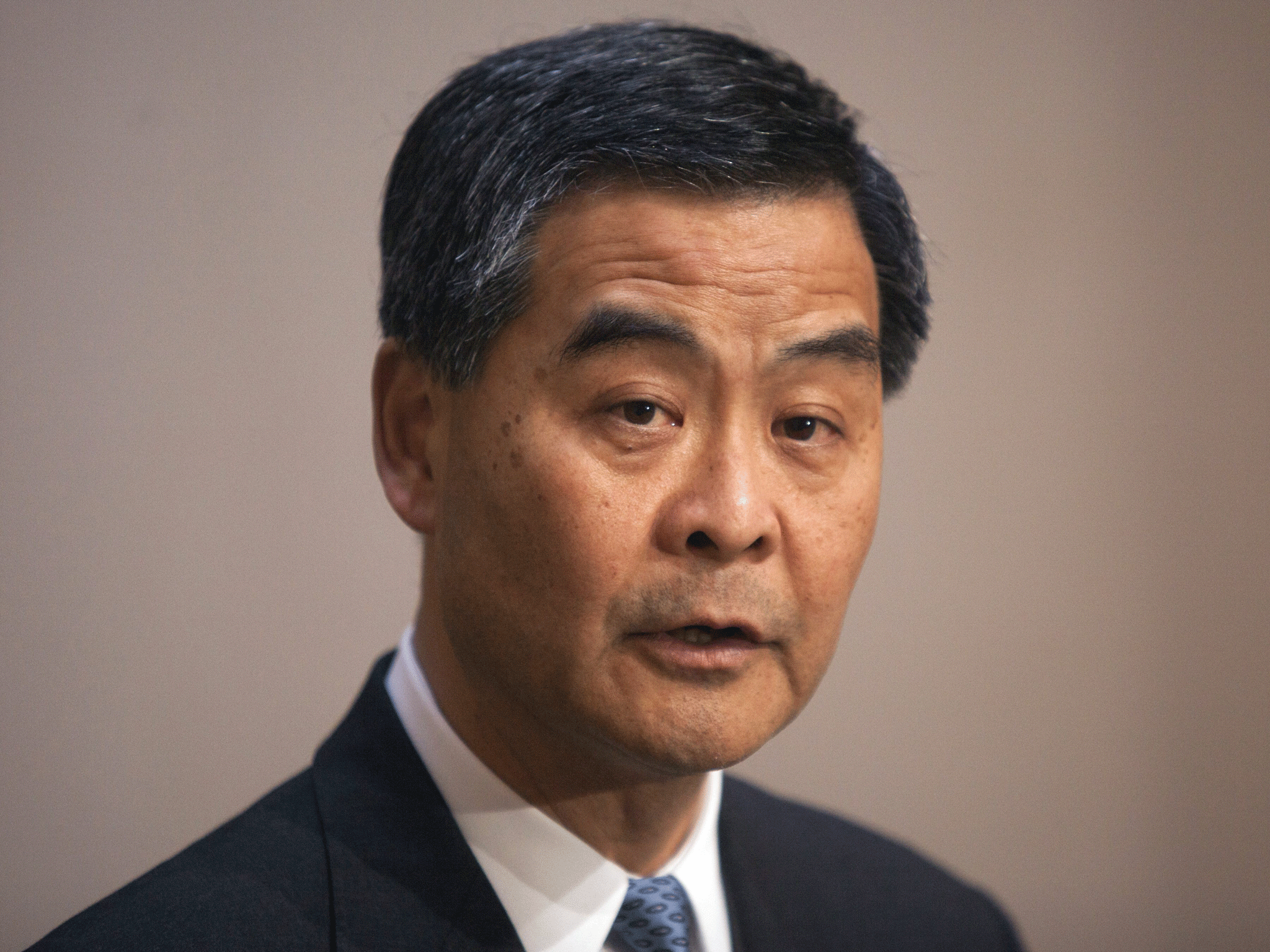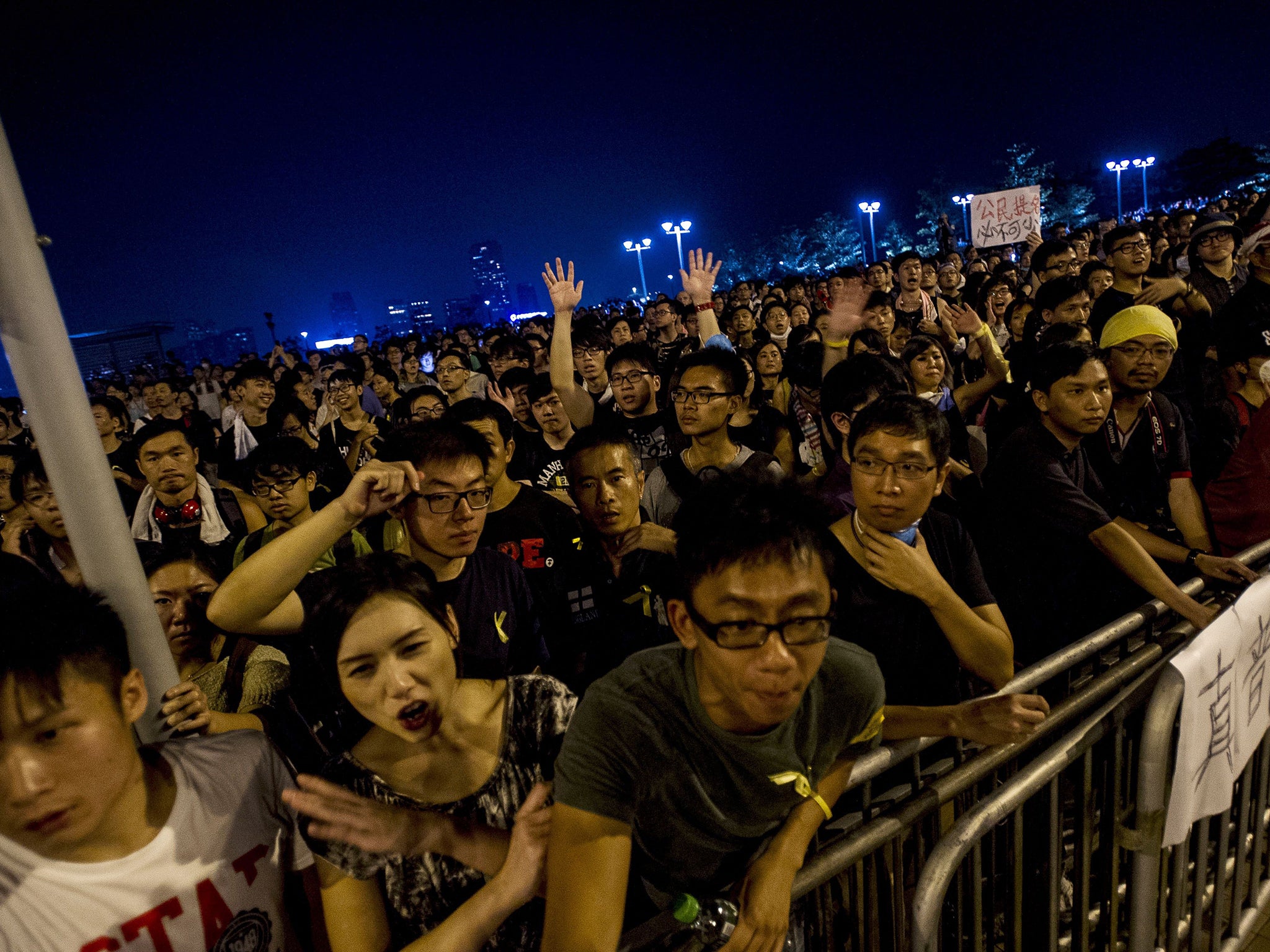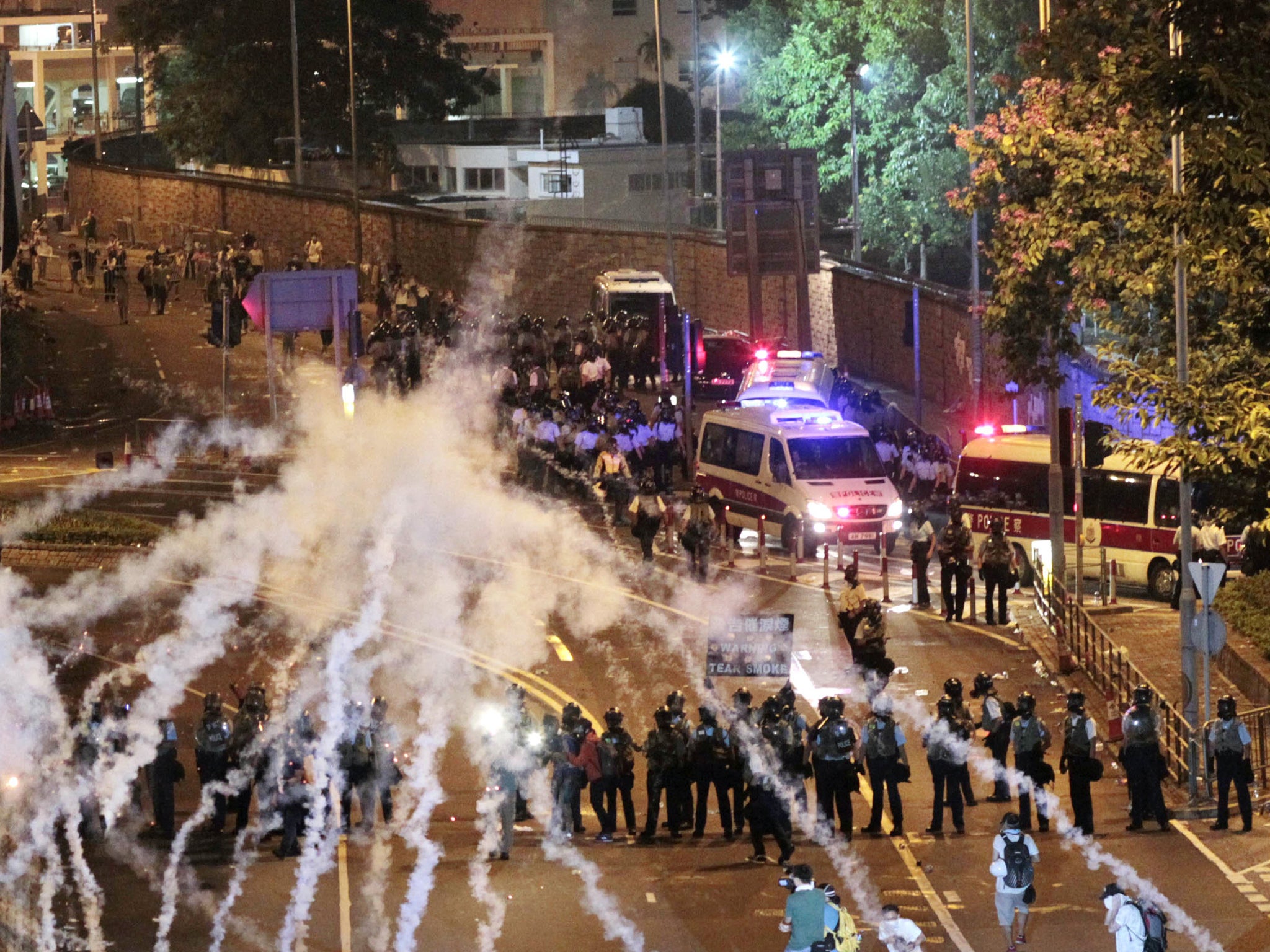Hong Kong leader Leung Chun-ying offers talks with protesters as he refuses to accept calls for him to resign
The embattled chief executive warned protesters the consequences of occupying government buildings would be serious

Hong Kong’s Beijing-backed leader has offered talks to student leaders whose demonstrations against what they say is China’s attempt to gerrymander elections have brought the territory to a standstill.
Speaking at the end of a fifth day of protests, Chief Executive Leung Chun-ying refused to meet demonstrators’ demands to resign but said his top official, Carrie Lam, would hold a meeting with students to discuss political reforms.
“I hope both sides will be satisfied,” said Ms Lam, the city’s Chief Secretary. “Students had wanted a public meeting but I hope that we can have some flexibility to discuss details.” Occupy Central continued to demand Mr Leung’s resignation, and reject Beijing’s framework, but said it “welcomes the news that Ms Lam will meet with the students” and “hopes the talks can bring a turning point to the current political stalemate”.
Mr Leung’s position had been bolstered earlier in the day when the People’s Daily newspaper, a Communist Party mouthpiece, published an editorial saying the party was “very satisfied” with his performance and had full confidence in his leadership. It also referred to the protest as “illegal activities” which threatened to bring chaos.
Nonetheless, the promise of face-to-face talks is an unusual concession by the Chinese government, and demonstrates their concern that the protests in one of Asia’s most important economic centres will continue over the weekend.
As Mr Leung spoke, hundreds of police officers stood at the barricade around his office, faced by thousands of protesters. Some of the police wore riot shields, and earlier in the day officers were seen carrying tear gas and rubber bullets into the area.
Protesters, many lined along a 100m-long flyover running parallel to the barricade, wore masks over their eyes and mouths, as protection against tear gas.
The occupation’s leaders had said that unless Mr Leung resigned by on Thursday they would storm government buildings, saying he had “already lost his integrity and any ruling legitimacy”.

“In any place in the world, if there are any protesters that surround, attack, or occupy government buildings like police headquarters, or the chief executive’s office... the consequences are serious,” Mr Leung said.
Steve Hui, Senior Superintendent of the Hong Kong police force, said police would “take resolute and firm action to restore public order”.
Speaking through a loudhailer, a police spokeswoman told the crowd that authorities had no intention of breaking the barricade, unless there was provocation.
A spokesman for the protesters replied that it was a “peaceful protest” and they wouldn’t follow up on their threat unless provoked, and told the masses they should remain calm and assume that anyone who tells them to fight police was a government agent provocateur.
These sentiments were echoed by student leaders Joshua Wong and Lester Shum, who addressed the crowd amid worries that some might get violent around Lung Wo Road, on the waterfront side of the government complex.

Mr Shum said: “The person who wants us to rush [at police barricades] is CY Leung. This is his scheme to unleash the tear gas and rubber bullets. Lung Wo Road is the only transport link between Kowloon and Hong Kong. It will backfire and all the support garnered in the last week will go to waste.”
“This is a war for public support,” Mr Wong added. “We must show Leung that we have the support of the masses.”
The protests represent the biggest challenge to Chinese rule over its special autonomous region since its handover from the UK in 1997. They were sparked by dissatisfaction over a framework handed down by Beijing for the election of Mr Leung’s successor in 2017. Under the model, candidates would have to achieve the support of at least 50 per cent of a 1,200-strong committee, which opponents say is stacked with Beijing loyalists.
The European Union called for restraint on both sides. A spokesman for the union’s foreign policy chief Catherine Ashton said: “We welcome the restraint shown by both sides. We encourage all parties to work in a spirit of compromise for a constructive solution within the framework of the Basic Law and the principle of ‘One Country-Two Systems’.”
Join our commenting forum
Join thought-provoking conversations, follow other Independent readers and see their replies
Comments
Bookmark popover
Removed from bookmarks